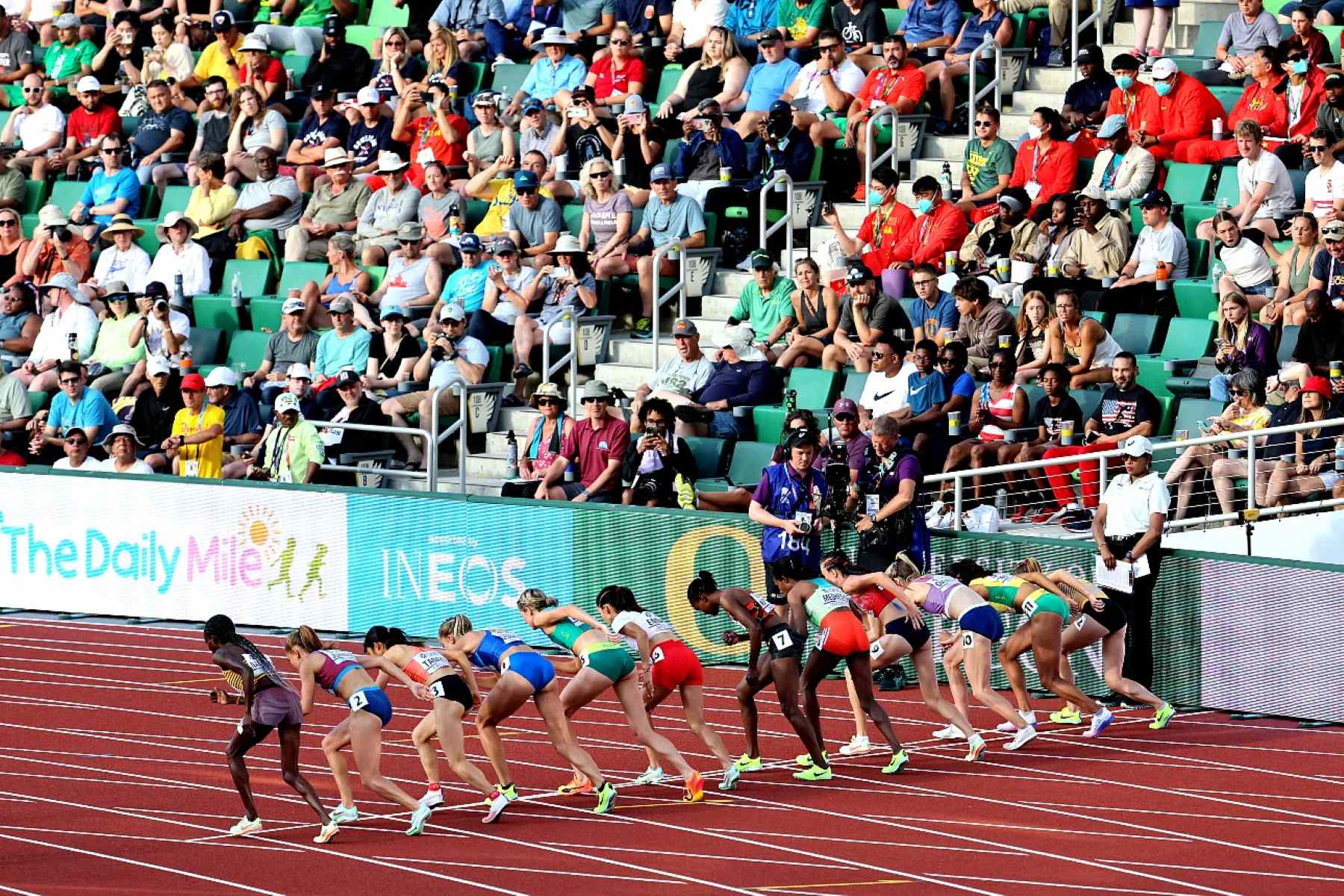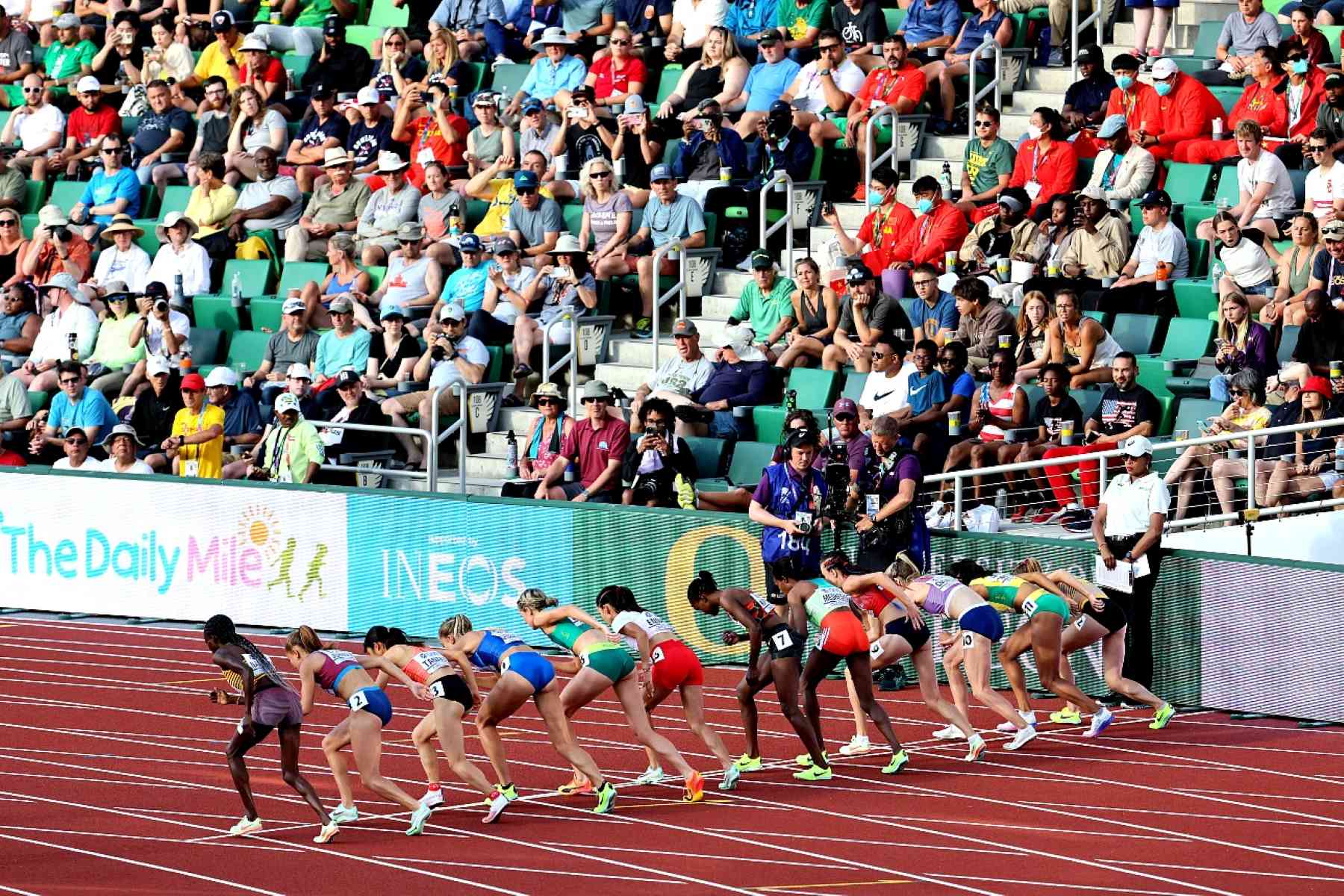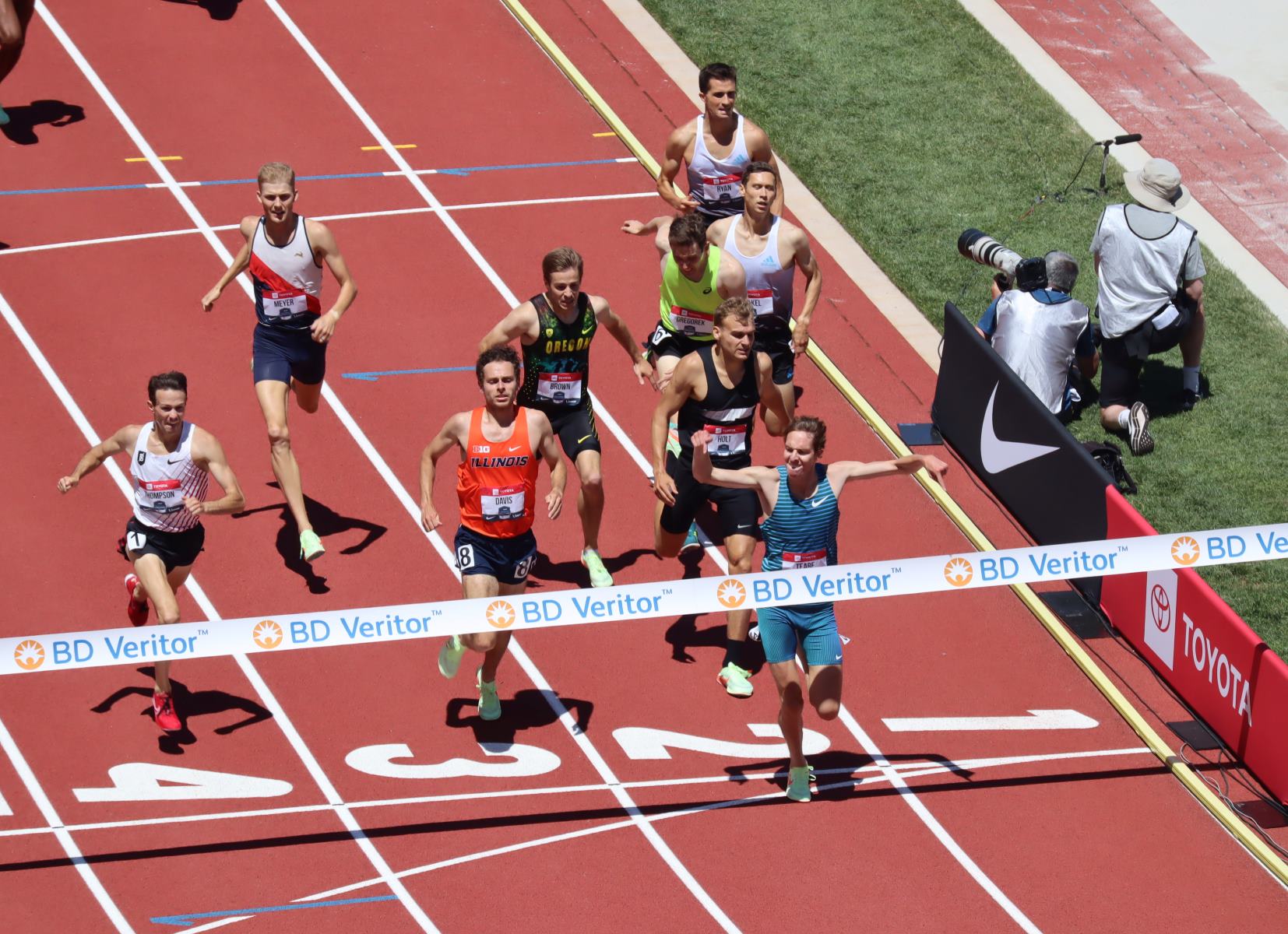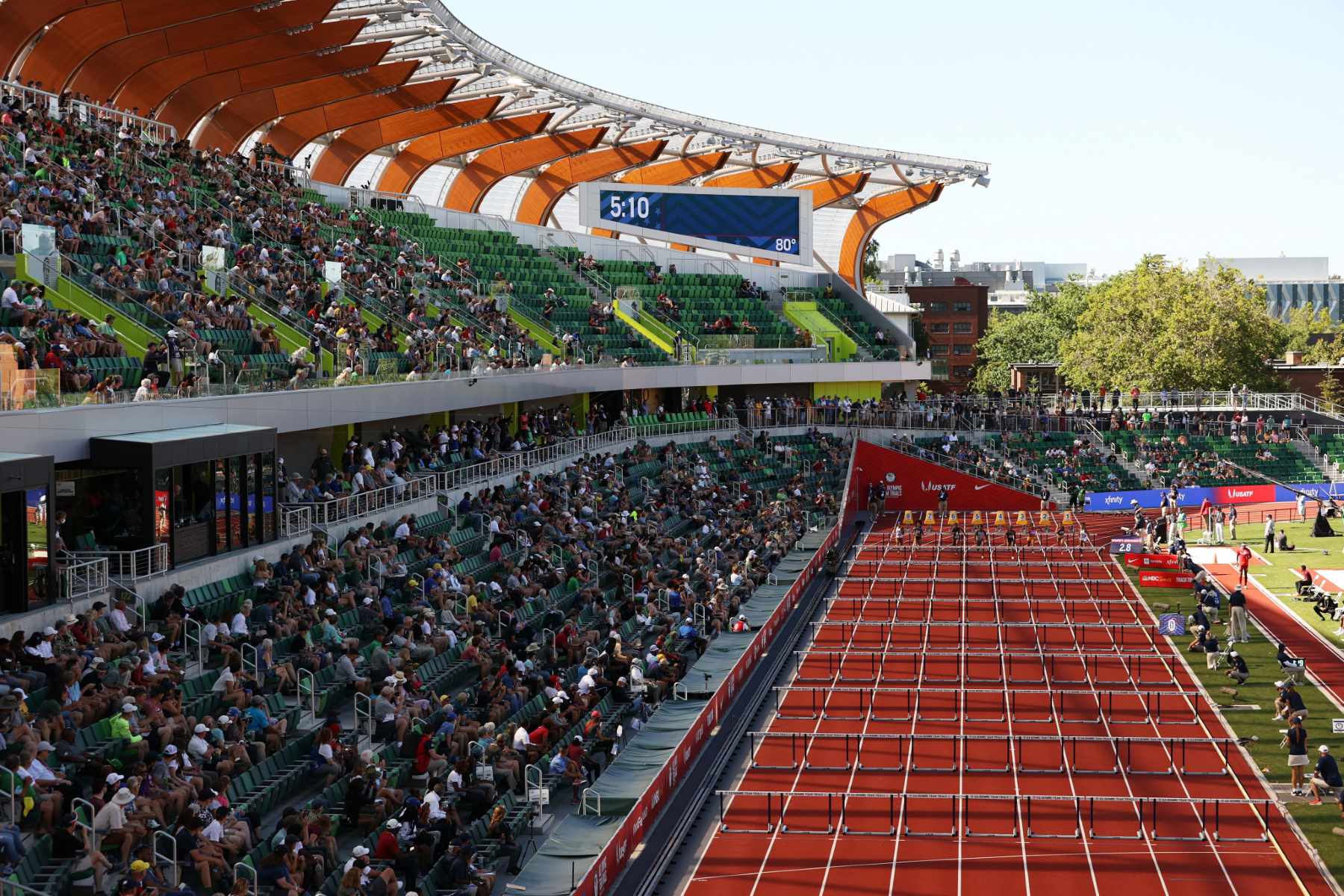Home>Misc>Featured>What If I Missed The USATF Association Junior Olympics Track And Field Championship
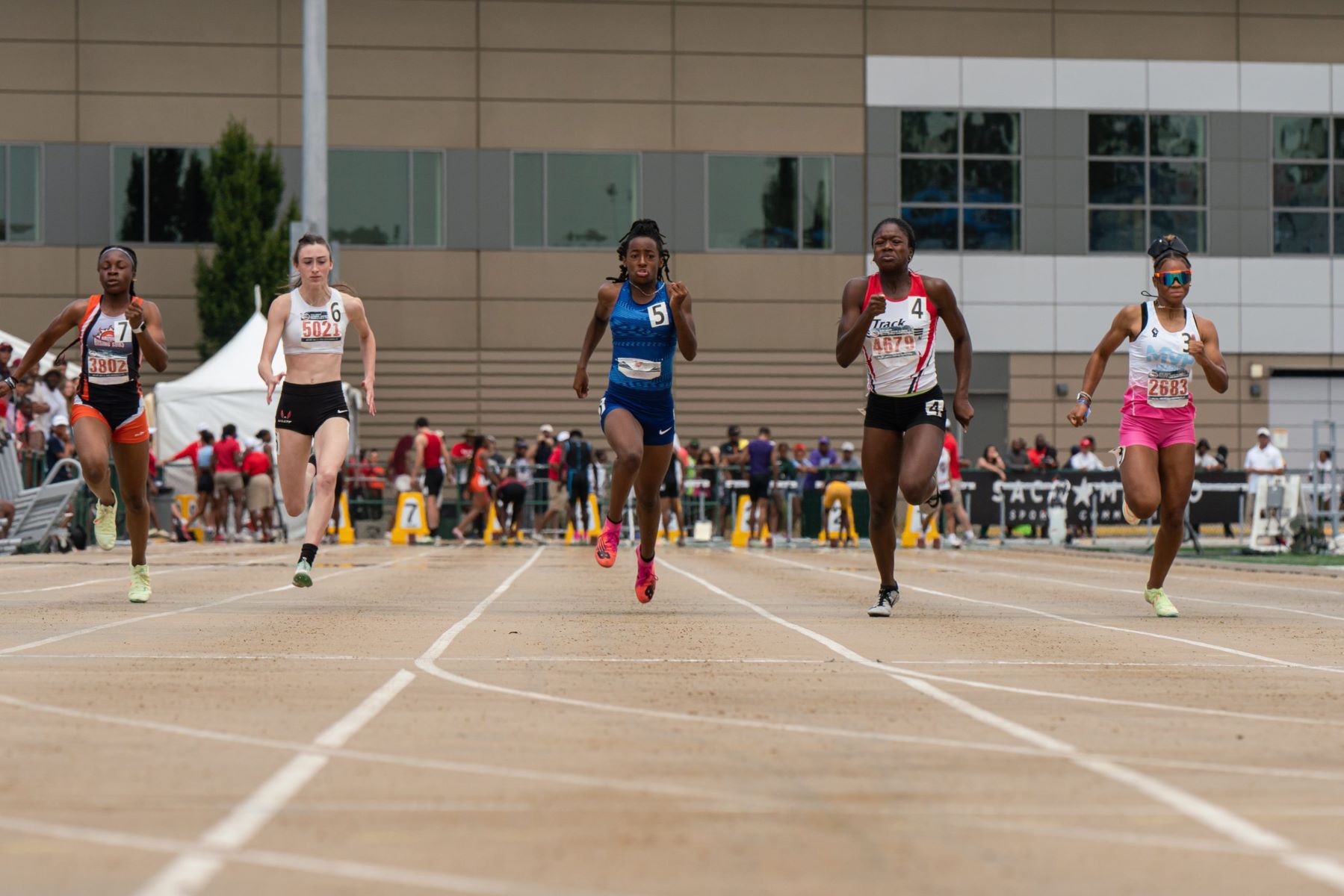

Featured
What If I Missed The USATF Association Junior Olympics Track And Field Championship
Modified: January 1, 2024
Don't miss out on the Featured article about what to do if you missed the USATF Association Junior Olympics Track And Field Championship. Find out the options available to you.
Introduction
Welcome to the world of competitive track and field! It’s an exciting and adrenaline-filled sport that demonstrates the true essence of athleticism. As a young athlete, participating in the USATF Association Junior Olympics Track and Field Championship is a dream come true. This prestigious event brings together the best young athletes from across the nation to showcase their skills, talent, and determination.
However, life can sometimes throw unexpected curveballs, and despite our best intentions, we may find ourselves unable to attend such a coveted event. Whether it’s due to unforeseen circumstances, conflicting commitments, or even injuries, missing the USATF Association Junior Olympics Track and Field Championship can be a disheartening experience.
Throughout this article, we will explore the impact of missing this championship, discuss alternatives, and provide some advice for moving forward. Remember, sports are an integral part of our lives, and although setbacks can be discouraging, they also present an opportunity for growth and self-discovery.
Understanding the USATF Association Junior Olympics Track and Field Championship
The USATF Association Junior Olympics Track and Field Championship is an esteemed competition that provides young athletes with the platform to compete at a national level. Organized by the United States of America Track and Field (USATF) Association, this championship brings together athletes from various regions, creating an atmosphere of fierce competition and camaraderie.
The event encompasses a wide range of track and field disciplines, including sprints, hurdles, long jump, high jump, shot put, discus throw, javelin throw, and much more. Each athlete competes in their respective age group and event category, aiming to showcase their skills and set personal records.
This championship not only offers the chance to compete against other talented athletes but also provides an opportunity for young participants to showcase their abilities to college recruiters and scouts. College coaches often attend these events, looking for promising athletes to recruit into their programs. The Junior Olympics Championship, therefore, acts as a stepping stone towards future athletic and educational opportunities.
Moreover, the championship is not just about the competition; it is about fostering sportsmanship, discipline, and personal growth among the young athletes. Participants get the chance to meet and interact with like-minded individuals who share a passion for track and field. They learn the values of teamwork, perseverance, and dedication through training, supporting each other, and cheering on fellow athletes.
Being part of this championship goes beyond the individual athlete; it reflects dedication and commitment from coaches, family members, and friends who have supported the athlete on their journey. The championship is a culmination of countless hours of training, sacrifices, and hard work. It symbolizes the immense pride and satisfaction that comes from achieving one’s goals.
Overall, the USATF Association Junior Olympics Track and Field Championship is a prestigious event that amplifies the excitement and competitiveness of track and field. It serves as a platform for young athletes to demonstrate their skills, connect with others, and potentially open doors for future athletic and educational opportunities.
Reasons for Missing the Championship
Life often presents unexpected challenges that can prevent us from participating in events that are important to us, such as the USATF Association Junior Olympics Track and Field Championship. While it can be disheartening to miss out on such a significant event, understanding the reasons behind our absence can help us cope and find alternative solutions.
One common reason for missing the championship is injury. Sustaining an injury in the days leading up to the event can be devastating, as it requires a period of rest and recovery to avoid further harm. Although it may be frustrating to watch from the sidelines, prioritizing your health and long-term athletic potential is crucial.
Sometimes, scheduling conflicts can arise, forcing athletes to miss the championship. These conflicts can stem from academic obligations, family commitments, or other important events that cannot be postponed. While it may be disappointing to miss out, it’s essential to strike a balance and honor our commitments outside of sports.
Financial constraints can also prevent athletes from participating in the championship. The costs associated with travel, accommodation, entry fees, and equipment can add up quickly, making it difficult for everyone to afford the expenses. It’s essential to recognize that financial situations differ for everyone, and sometimes, the realities of life make it challenging to attend events like the Junior Olympics.
Additionally, unforeseen personal circumstances can arise that make attending the championship impossible. These could include sickness, family emergencies, relocation, or other unexpected events that disrupt our plans. Life is unpredictable, and sometimes we have no control over the situations that arise.
Lastly, it’s crucial to remember that missing the championship does not define you as an athlete or as a person. While the event is prestigious and offers valuable opportunities, it’s important to maintain perspective and understand that there will be numerous other opportunities for growth and success in the future.
While it can be disappointing and frustrating to miss out on the USATF Association Junior Olympics Track and Field Championship, understanding the reasons behind our absence can help us navigate the emotional roller coaster that comes with it. It’s essential to remember that setbacks are a part of life, and how we handle these setbacks ultimately shapes our character and resilience.
The Impact of Missing the Championship
Missing the USATF Association Junior Olympics Track and Field Championship can have both short-term and long-term impacts on athletes. While the immediate effect may be disappointment and frustration, it’s important to recognize that there are lessons to be learned and opportunities for growth even in the face of adversity.
One of the immediate impacts of missing the championship is the emotional toll it can take on the athlete. After dedicating countless hours to training and preparation, the prospect of not being able to compete can lead to feelings of sadness, regret, and even self-doubt. Coping with these emotions and finding healthy ways to process them is key.
In addition to the emotional impact, missing the championship can also have practical implications. For athletes aspiring to join collegiate sports programs, not participating in the Junior Olympics may mean missing out on valuable exposure to college recruiters and scouts who often attend such events. However, it’s important to remember that there are other avenues and opportunities for university recruitment, such as showcasing your skills at regional competitions or reaching out to coaches directly.
Another potential consequence of missing the championship is the loss of valuable experience and competition. The Junior Olympics provides a unique platform for athletes to test their skills against the best young athletes in the country. The absence of this experience can lead to a sense of missed opportunity and the need to work harder to prove oneself in future competitions.
On the other hand, there can be positive aspects that result from missing the championship. It allows athletes to step back and reflect on their journey, reevaluate their goals, and identify areas for improvement. It can be an opportunity to work on weaker areas, refine training techniques, and build overall strength and endurance.
Furthermore, the experience of missing the championship can foster resilience and determination. Facing and overcoming disappointment is an essential part of an athlete’s journey. It teaches invaluable life skills such as perseverance, adaptability, and the ability to bounce back stronger from setbacks.
While missing the USATF Association Junior Olympics Track and Field Championship may initially feel like a significant setback, it’s important to maintain perspective and focus on the bigger picture. It’s important to remember that athletic success is not solely determined by one event but by the dedication, commitment, and growth that happens over time.
Ultimately, the impact of missing the championship can be seen as an opportunity for personal and athletic growth. By embracing the challenges, seeking alternative pathways, and maintaining a positive mindset, athletes can continue to progress on their journey and set themselves up for future success.
Exploring Alternatives
While missing the USATF Association Junior Olympics Track and Field Championship may be disheartening, there are alternative paths that athletes can explore to continue their pursuit of growth and success in the sport. Here are some alternatives to consider:
- Local Competitions: Look for local track and field events or meets in your area. These competitions may not have the same level of prestige as the Junior Olympics, but they provide an opportunity to compete and improve your skills. Participating in local events can help you stay motivated and connected to the sport.
- Training and Skill Development: Focus on your training and skill development to become an even better athlete. Work with your coach to set goals and create a structured training program that focuses on improving your performance in specific events. Developing a solid foundation will set you up for future success.
- College Showcases: Research and identify college showcases or recruitment events where you can showcase your talents to college coaches. These events offer an opportunity to gain exposure and potentially catch the attention of coaches who are seeking talented athletes to join their programs.
- Club or Team Competitions: Consider joining a local track and field club or team that competes in regional or national-level events. This will not only provide you with more opportunities to compete but also expose you to a higher level of competition and enhance your skills through regular training and competition.
- Setting New Goals: Use the experience of missing the championship as a motivation to set new goals for yourself. Reflect on where you want to see improvement in your performances and work towards achieving those goals in the coming seasons.
Remember, track and field is a journey that extends beyond a single event. While the Junior Olympics may provide unique opportunities, there are numerous other avenues that can lead to success in the sport. Explore these alternatives, stay committed to your training, and embrace the challenges that come your way. Success is not always defined by a single event but by the resilience, determination, and growth you demonstrate throughout your athletic journey.
Seeking Opportunities for Future Participation
Missing the USATF Association Junior Olympics Track and Field Championship should not deter you from seeking future opportunities to participate in competitive events. There are numerous avenues to explore and platforms to showcase your talent and dedication to the sport. Here are some ways to seek future participation:
- Research Other National-Level Competitions: Look into other national-level track and field competitions that align with your age group and event category. There are several championship events organized by different organizations throughout the year. Research and identify those that match your goals and abilities, and work towards participating in them.
- Consider International Competitions: If you have a strong track record and aspire to compete on an international stage, explore opportunities to represent your country at international junior and youth competitions. These events provide an excellent platform to compete against athletes from around the world and gain exposure to new levels of competition.
- Participate in College Invitational Meets: As you approach the end of your high school career, consider participating in college invitational meets. These events are organized by colleges and universities and often invite high school athletes to compete. This gives you a chance to showcase your skills to college coaches and potentially catch their attention for recruitment opportunities.
- Seek Scholarships and Grants: Research scholarships or grants offered by athletic associations or organizations for young athletes. These financial resources can help alleviate the financial burden associated with participation in competitive events. Look into eligibility criteria and apply for relevant scholarships that can support your athletic journey.
- Engage with Local and Regional Associations: Stay connected with your local and regional track and field associations. Attend meetings, workshops, and events hosted by these organizations. They often provide information about upcoming competitions, training camps, and resources to support your development as an athlete.
Remember, seeking future opportunities for participation requires proactive research, networking, and dedication. Stay up to date with the latest news and developments in the track and field community. Talk to coaches, trainers, and mentors who can guide you towards relevant opportunities. Most importantly, remain focused on your training, set goals, and consistently work towards improving your performance.
Every setback is an opportunity for growth, and missing one event does not define your journey as an athlete. Embrace the challenges, stay resilient, and continue to strive for excellence. With the right mindset and determination, you can find exciting opportunities to showcase your talent and achieve success in the world of track and field.
Coping with Frustration and Disappointment
Missing the USATF Association Junior Olympics Track and Field Championship can bring about a range of emotions, including frustration and disappointment. It’s important to acknowledge and address these feelings in a healthy and productive manner. Here are some strategies to cope with these emotions:
- Allow Yourself to Feel: It’s natural to feel frustrated and disappointed when you miss an event that you’ve been working hard towards. Permit yourself to feel these emotions and give yourself space to process them. Remember that it’s okay to be disappointed, but it’s how you deal with these emotions that truly matters.
- Seek Support: Reach out to your support system, including family, friends, coaches, and teammates. Share your feelings with them and discuss your experience. Talking about your frustrations and disappointments can provide a sense of relief and perspective. Your loved ones can offer guidance, encouragement, and reassurance, reminding you that there will be more opportunities in the future.
- Reflect and Learn: Take time to reflect on your journey leading up to the championship and identify areas for improvement. Use this setback as an opportunity for self-reflection and growth. Focus on what you can learn from the experience and how you can channel your disappointment into renewed motivation for future events.
- Set New Goals: Shift your focus towards setting new goals and creating a plan to achieve them. By redirecting your energy and setting your sights on future events or milestones, you can regain a sense of purpose and drive. Develop a realistic and achievable plan that aligns with your aspirations and work diligently towards those goals.
- Practice Self-Care: Engage in activities that promote your mental and physical well-being. Take time to rest, relax, and recharge. Prioritize self-care practices such as exercise, mindfulness, getting enough sleep, and maintaining a healthy lifestyle. Taking care of yourself holistically will help you stay resilient and focused on your long-term athletic journey.
- Stay Motivated: Cultivate a positive mindset and find sources of motivation to keep you engaged in the sport. Surround yourself with uplifting and inspiring content, such as athlete success stories, motivational quotes, and videos. Engage in positive self-talk and remind yourself of the progress you have already made and the potential that lies ahead.
Remember, setbacks are an inherent part of any athletic journey. It’s how you respond to these setbacks that defines your character and resilience. Use the experience of missing the championship as an opportunity for personal growth and learning. With determination, perseverance, and a positive mindset, you can overcome your frustrations and disappointments and continue on your path towards greater success in the world of track and field.
Learning from the Experience
Missing the USATF Association Junior Olympics Track and Field Championship can be a valuable learning experience that shapes your growth as an athlete and individual. It’s important to reflect on the lessons you can take away from this setback and use them as stepping stones toward future success. Here are some key insights to consider:
- Resilience: The experience of missing the championship tests your resilience and ability to bounce back from disappointment. Embrace the challenges and setbacks as opportunities to build mental toughness and develop the ability to overcome obstacles.
- Goal Setting and Adaptability: Reevaluate your goals and create a plan that aligns with your revised timeline. Set realistic and achievable targets to work towards, and be willing to adapt and adjust your strategies as necessary. Flexibility and adaptability will be crucial in navigating the ever-changing nature of sports.
- Consistency and Dedication: Use this setback as a motivation to refine your training routine and focus on consistent effort and dedication. Every practice and training session counts, and maintaining a strong work ethic will help you progress and improve over time.
- Mental and Physical Well-being: Take the time to prioritize your mental and physical well-being. Recognize the importance of rest, recovery, and self-care in your overall athletic performance. Balance your training with proper rest, nutrition, and self-care practices to ensure you remain healthy and motivated.
- Embracing Challenges: Understand that setbacks and obstacles are a natural part of the athletic journey. Embrace these challenges as opportunities for growth, learning, and self-improvement. Apply the lessons you have learned from this experience to face future challenges with resilience, determination, and a positive mindset.
- Perspective and Enjoyment: Remember why you started your journey in track and field in the first place. Stay connected to the joy and passion that drew you to the sport. While championships and competitions are important milestones, continue to find enjoyment in the process and celebrate small victories along the way.
Learning from the experience of missing the championship is a crucial aspect of your overall development as an athlete. Use this setback as an opportunity to gain valuable insights that will contribute to your growth both on and off the track. Remember, success is not defined by a single event but by the lessons learned, personal growth achieved, and the resilience and dedication demonstrated throughout your athletic journey.
Conclusion
Missing the USATF Association Junior Olympics Track and Field Championship can be a challenging and disappointing experience for young athletes. However, setbacks are a natural part of any athletic journey, and it’s important to approach them with resilience, determination, and a positive mindset.
Throughout this article, we have explored the impact of missing the championship, discussed alternatives for continued participation, and provided strategies for coping with frustration and disappointment. It’s crucial to remember that missing one event does not define your journey as an athlete. Instead, it offers an opportunity for growth, self-reflection, and learning.
By understanding the reasons for missing the championship, exploring alternative avenues for participation, and seeking opportunities for future involvement, you can continue to pursue your passion for track and field. Embrace the challenges, set new goals, and work diligently to improve your skills and performance.
Furthermore, coping with frustration and disappointment is an important aspect of your journey. Allow yourself to feel the emotions associated with missing the championship, seek support from your loved ones, and practice self-care. Turn this setback into an opportunity for personal growth, resilience, and determination.
Remember, every setback is a stepping stone toward success. Embrace the lessons learned from this experience, stay focused on your goals, and continue to pursue excellence in the world of track and field. Your journey as an athlete is a marathon, not a sprint, and with determination, dedication, and a positive mindset, you can overcome setbacks and achieve greatness.


